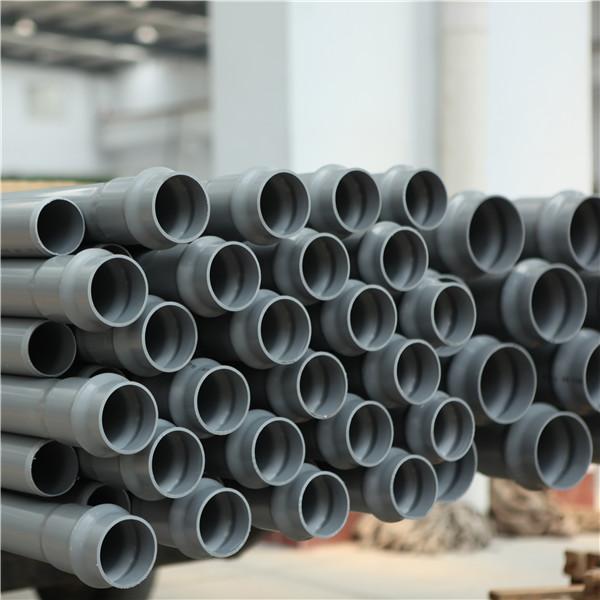сеп. . 24, 2024 00:49 Back to list
Understanding the Benefits and Uses of PVC Conduit Pipes in Electrical Installation
Understanding PVC Conduit Pipe A Comprehensive Overview
PVC (Polyvinyl Chloride) conduit pipes have become an essential component in the construction and electrical industry, serving as protective pathways for electrical wiring. Their rising popularity is attributed to their versatility, durability, and ease of installation. In this article, we’ll explore the properties, advantages, and various applications of PVC conduit pipes.
Properties of PVC Conduit Pipe
PVC conduit pipes are made from polyvinyl chloride, a synthetic plastic polymer that is known for its robust chemical resistance and lightweight nature. Typically, these pipes come in various sizes and thicknesses, catering to different electrical applications. The most commonly used types are rigid PVC conduits, which provide excellent protection for wires and cables against environmental factors such as moisture, chemicals, and physical impacts.
Advantages of PVC Conduit Pipe
1. Corrosion Resistance Unlike metallic conduits, PVC does not corrode when exposed to moisture or chemicals, ensuring a longer lifespan for the wiring it encapsulates. This property is particularly beneficial in areas with high humidity or exposure to harsh chemicals.
2. Lightweight and Easy to Handle PVC conduits are significantly lighter than their metal counterparts, which simplifies transportation and installation. Electrical contractors appreciate PVC's ease of handling, reducing labor costs and time during installation.
3. Non-conductive Being non-metallic, PVC conduit pipes do not conduct electricity, providing a safer option for protecting electrical systems. This characteristic minimizes the risk of electric shock and short circuits compared to metal conduits.
pvc conduit pipe

4. Cost-Effective PVC conduits are generally more affordable than metal conduits. This price advantage, combined with lower installation costs due to their light weight, makes PVC an economically feasible choice for many commercial and residential projects.
5. Flexibility Available in both rigid and flexible forms, PVC conduits can be used in a variety of applications. The flexibility of certain types allows for easy installation in tight spaces or around corners.
Applications of PVC Conduit Pipe
PVC conduit pipes are widely used in numerous applications, from residential wiring to commercial installations. In residential buildings, they protect wiring systems, including those for lighting and home appliances. In commercial settings, PVC conduits are often utilized to house electrical cables, data lines, and low-voltage systems.
Moreover, these conduits find extensive use in outdoor applications, serving as protection against environmental conditions. They are also employed in various industrial settings, particularly in places where moisture or corrosive substances are present.
Conclusion
In conclusion, PVC conduit pipes are invaluable in the realm of electrical installations. Their properties, such as corrosion resistance, lightweight nature, non-conductivity, and cost-effectiveness make them a preferred choice for both electricians and builders. As technology advances, the design and regulatory standards for PVC conduits continue to improve, enhancing their safety and functionality. Whether in residential, commercial, or industrial applications, PVC conduit pipes are here to stay, providing reliable protection for crucial electrical systems.
-
High Transparency PVC Clear Sheet Super Transparency PVC Sheets & HDPE Cutting Board Supplier
NewsJul.04,2025
-
High-Quality PVC-M Pipe Supplier Trusted PVC Pipe Company & 75mm PVC Connection Pipe Solutions
NewsJul.04,2025
-
PVC Transparent Sheet Roll - Durable & Flexible PVC Plastic Sheet Roll for Industrial & Home Use
NewsJun.24,2025
-
High-Quality PVC PPR Pipes and Fittings Durable ERA PPR Solutions
NewsJun.10,2025
-
High-Quality Large HDPE Sheets & Large Diameter PVC Pipe Durable Large PVC Pipe Supplier
NewsJun.10,2025
-
High Density Polyethylene Cutting Board - Durable & Food Safe
NewsJun.09,2025

